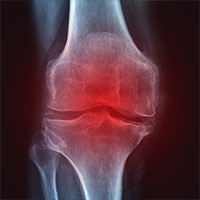Keeping Winter Joint Pain in Check

As cold weather sets in, joint pain can intensify. This is especially true for seniors with arthritis or other joint problems. Cold temperatures can make joints feel stiffer and sorer than they do during warm summer days. But winter joint pain doesn’t have to keep you sidelined all season. Here are some tips that may provide some relief and allow you to make the most of each day and continue doing what you love.
- Wear layers. Instead of a bulky sweater, try wearing a few different layers to keep your muscles and joints warm. This allows you to better control your body’s temperature by adding or removing clothes depending on where you are and how you feel. Layers also help to prevent sudden changes in temperature – such as stepping outside – from affecting your joints as much.
- Turn up the temperature. Raising the temperature in your home by just a degree or two can make a big difference and keep the chill out of the air. A warm environment can reduce stiffness and achiness allowing you to move around more comfortably.
- Keep moving. It can be tempting to sit around bundled up in a blanket watching your favorite movie or reading a good book when it’s cold outside, but that can actually make you feel worse. Lack of activity can make your joints feel even stiffer and harder to move. Do some stretches throughout the day and walk around, even if it’s just doing a few laps around your living room. You want to keep your muscles warm and loose.
- Wear supportive footwear. Pressure on your joints can also be caused by lack of support of your feet. If you’re walking around in bare feet or flimsy slippers, it can be hard on ankles, knees, hips, and your back. Try to wear sneakers with good arch support and cushioning, and don’t forget to pay attention to your posture as well.
- Balance rest with activity. While you want to stay active with some low-impact activity and stretching, don’t overdo it. Too much exercise can also make your joints feel sore and achy. Listen to your body and take a break when you need it. Applying a heating pad (or ice) periodically can also help reduce inflammation and ease discomfort.
- Take medication. There are both over-the-counter and prescription medications that may provide some relief from joint pain caused by arthritis, aging, or other conditions. Talk to your doctor about what is right for you and how to create an effective treatment plan.
Dealing with arthritis can be challenging and make activities of daily living harder when you’re on your own. An in-home caregiver can help you with many tasks, whether getting dressed, straightening up around the house, preparing meals, or writing correspondences. They can also be a wonderful source of companionship and escort you to different activities to ensure you’re safe.
Always Best Care provides a wide range of senior services to support aging adults in improving their quality of life and receiving the appropriate level of assistance. You don’t have to do everything on your own. Contact Always Best Care today at (855) 470-2273 to schedule a free consultation and find out how in-home care can benefit you if you’re living with arthritis or joint pain.





